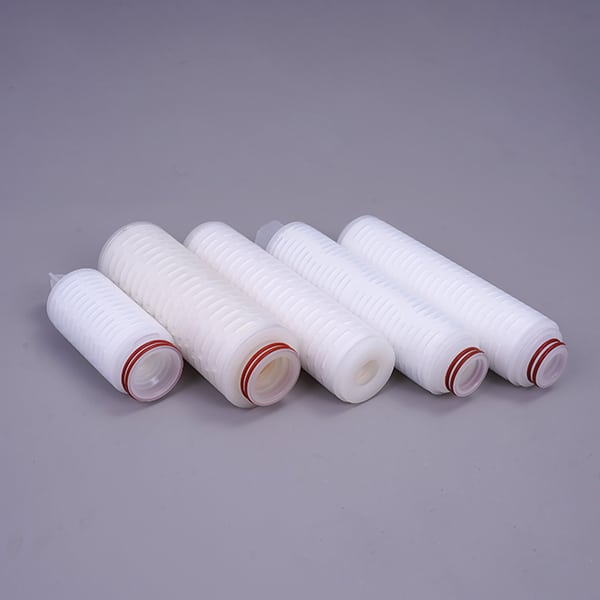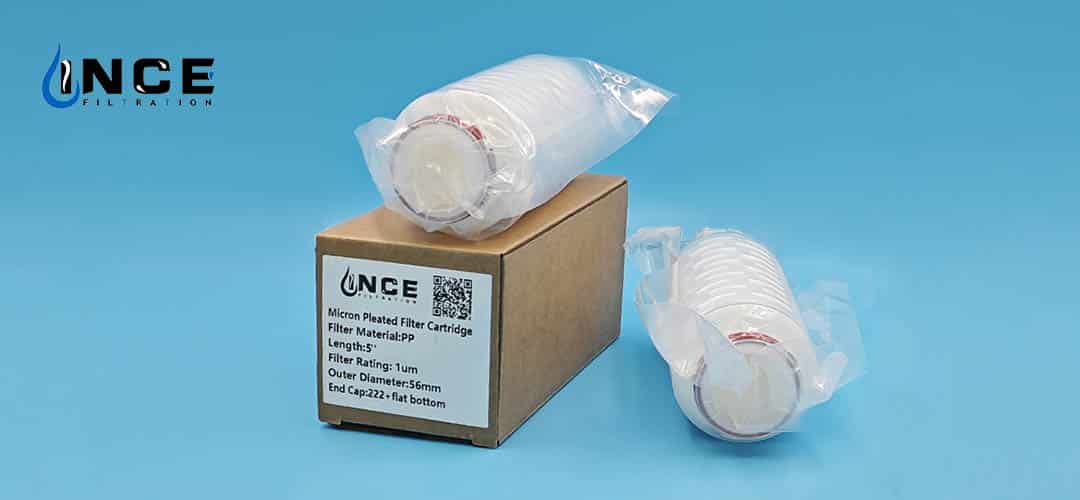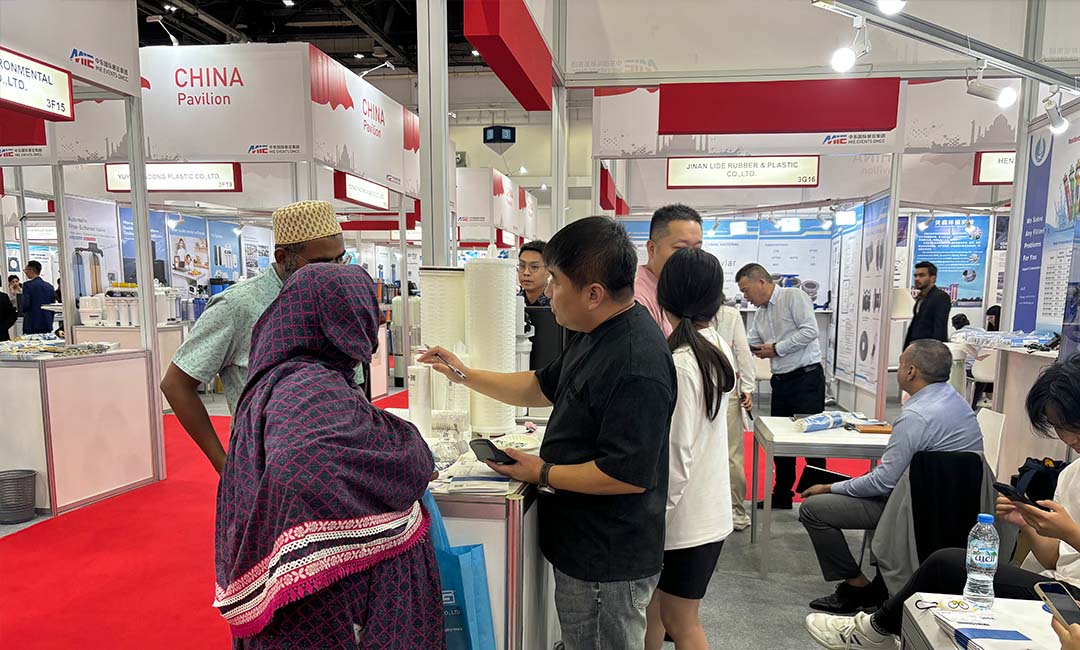
The Importance of HS Codes for Pleated Filter Cartridge Exporters
How HS Codes Impact International Trade for Pleated Filter Cartridge Exporters
When it comes to exporting pleated filter cartridges, understanding and correctly using Harmonized System (HS) codes is crucial for international trade. HS codes are a standardized system used to classify products for customs purposes, making it easier for countries to track and regulate the flow of goods across borders. For pleated filter cartridge exporters, using the correct HS code can mean the difference between smooth sailing and encountering costly delays or even legal issues.

One of the key reasons why HS codes are so important for pleated filter cartridge exporters is that they determine the amount of duty that will be levied on the products. Each HS code is associated with a specific rate of duty, which is applied when the goods enter a foreign country. By using the correct HS code for their products, exporters can ensure that they are paying the correct amount of duty and avoid any potential penalties for underpayment.
In addition to determining duty rates, HS codes also play a crucial role in customs clearance processes. When pleated filter cartridges are shipped to a foreign country, customs officials will use the HS code to identify the products and ensure that they comply with all relevant regulations. If the wrong HS code is used, it can lead to delays in customs clearance, as officials may need to conduct additional inspections or request more information from the exporter.
Furthermore, using the correct HS code is essential for ensuring that pleated filter cartridge exporters are in compliance with all relevant trade agreements and regulations. Many countries have specific requirements for the importation of certain products, and using the correct HS code is a key part of meeting these requirements. Failure to comply with these regulations can result in fines, seizure of goods, or even legal action against the exporter.

For pleated filter cartridge exporters looking to expand their international market reach, using the correct HS code is also important for building trust with customers and partners. By accurately classifying their products, exporters can demonstrate that they are knowledgeable about international trade regulations and are committed to conducting business in a transparent and compliant manner. This can help to build credibility and strengthen relationships with overseas buyers, leading to increased sales and opportunities for growth.
In conclusion, HS codes play a critical role in the international trade of pleated filter cartridges. By using the correct HS code for their products, exporters can ensure that they are paying the correct amount of duty, expedite customs clearance processes, comply with trade regulations, and build trust with customers and partners. For pleated filter cartridge exporters looking to succeed in the global marketplace, understanding and correctly using HS codes is essential.
Benefits of Using Correct HS Codes for Pleated Filter Cartridge Exporters
When it comes to exporting pleated filter cartridges, one of the most important aspects that exporters need to consider is the correct classification of their products. This is where Harmonized System (HS) codes come into play. HS codes are a standardized system used to classify products for international trade. They are essential for ensuring that goods are properly identified and categorized for customs purposes.

Using the correct HS codes for pleated filter cartridges can have a significant impact on the export process. Not only does it help streamline customs clearance procedures, but it also ensures that the products are accurately classified for tariff and duty purposes. This can ultimately lead to cost savings for exporters and help avoid potential delays or penalties.
One of the key benefits of using the correct HS codes for pleated filter cartridge exporters is that it helps facilitate smooth customs clearance. Customs authorities use HS codes to identify and verify the products being imported or exported. By providing the correct HS code for pleated filter cartridges, exporters can help expedite the clearance process and avoid unnecessary delays at the border.
Furthermore, using the correct HS codes can also help ensure that pleated filter cartridges are accurately classified for tariff and duty purposes. Tariffs and duties are imposed on imported goods based on their classification, and using the wrong HS code can result in overpayment or underpayment of duties. By accurately classifying pleated filter cartridges, exporters can ensure that they are paying the correct amount of duties and avoid any potential penalties for misclassification.
In addition to facilitating customs clearance and ensuring accurate classification for tariff purposes, using the correct HS codes for pleated filter cartridges can also help exporters comply with regulatory requirements. Different countries have different regulations governing the import and export of goods, and using the correct HS code can help ensure that pleated filter cartridges meet the necessary requirements for entry into a particular market.
Moreover, using the correct HS codes can also help exporters take advantage of preferential trade agreements. Many countries have trade agreements in place that offer preferential treatment to goods imported from certain countries. By using the correct HS code for pleated filter cartridges, exporters can ensure that their products qualify for any preferential treatment available under these agreements, such as reduced tariffs or duty-free access.
Overall, the importance of using the correct HS codes for pleated filter cartridge exporters cannot be overstated. From facilitating customs clearance to ensuring accurate classification for tariff purposes and compliance with regulatory requirements, HS codes play a crucial role in the export process. By taking the time to correctly classify their products and use the appropriate HS codes, exporters can streamline their export operations, reduce costs, and avoid potential pitfalls in the international trade arena.
Common Mistakes to Avoid When Dealing with HS Codes for Pleated Filter Cartridge Exporters
When it comes to exporting pleated filter cartridges, one of the most important aspects to consider is the Harmonized System (HS) codes. These codes are used to classify goods for customs purposes and are essential for determining the correct duties, taxes, and regulations that apply to your products. However, many exporters make common mistakes when dealing with HS codes that can lead to delays, fines, or even the rejection of their shipments. In this article, we will discuss some of the most common mistakes to avoid when dealing with HS codes for pleated filter cartridge exporters.
One of the most common mistakes that exporters make is using the wrong HS code for their products. Each product has a specific HS code that is used to classify it for customs purposes. Using the wrong code can result in your products being held up at customs, or even rejected altogether. It is important to carefully research and determine the correct HS code for your pleated filter cartridges to ensure smooth customs clearance.
Another common mistake is failing to update HS codes when regulations change. HS codes are updated regularly to reflect changes in international trade regulations. Failing to update your HS codes can result in your products being classified incorrectly, leading to delays and potential fines. It is important to stay informed about any changes to HS codes that may affect your pleated filter cartridges and make the necessary updates to ensure compliance.
Additionally, some exporters make the mistake of relying solely on their freight forwarder or customs broker to determine HS codes for their products. While these professionals can provide valuable assistance, ultimately it is the exporter’s responsibility to ensure that the correct HS codes are used. It is important to work closely with your freight forwarder or customs broker to verify the accuracy of the HS codes being used for your pleated filter cartridges.
Another common mistake is assuming that HS codes are the same in every country. While the HS system is used internationally, each country may have its own specific regulations and requirements for classifying goods. It is important to research and understand the HS code requirements for each country you are exporting to in order to ensure compliance and avoid any potential issues.
Finally, some exporters make the mistake of not keeping detailed records of their HS codes and customs documentation. Keeping accurate records of your HS codes, customs declarations, and other relevant documentation is essential for ensuring compliance and resolving any issues that may arise during the export process. It is important to maintain organized records and be prepared to provide documentation to customs authorities if requested.
In conclusion, HS codes are a crucial aspect of exporting pleated filter cartridges, and it is important for exporters to avoid common mistakes when dealing with them. By researching and determining the correct HS codes, staying informed about regulatory changes, working closely with professionals, understanding country-specific requirements, and keeping detailed records, exporters can ensure smooth customs clearance and compliance with international trade regulations. By avoiding these common mistakes, pleated filter cartridge exporters can streamline their export process and avoid potential delays or fines.

